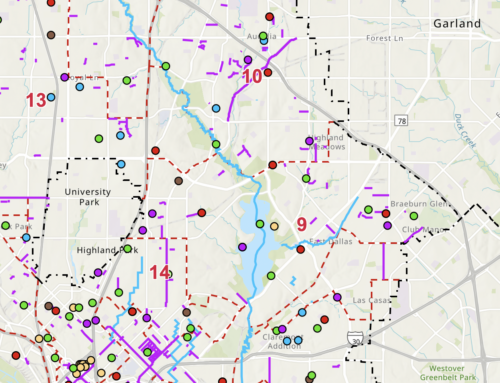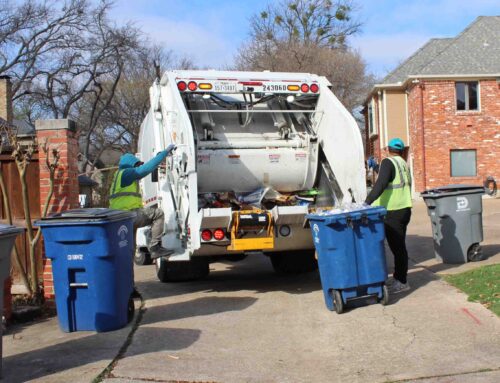An East Dallas resident hits a pothole on Woodcrest Lane on her way home from work. At home, she watches the 6 p.m. news, eats dinner, then calls the City to report the pothole.
Even though it’s almost 8 p.m., she talks to a City employee, tells where the repair is needed and hangs up. Before the week is out, the pothole is filled.
This is an example of the accessibility and efficiency at the heart of the re-engineering plan for Dallas’ municipal services that was recently presented to the City Council.
When City Manager John Ware took office Nov. 1, he began a five-month project that reinvents our municipal government to be more customer-driven, more customer-focused and more responsive to Dallas citizens.
An important feature of the plan pushes decision-making lower in the organization, enabling City employees to respond quickly to those they serve. It also increases the accountability of department directors and supervisors.
Other features include improving interdepartmental communications of service delivery; giving a higher priority to intergovernmental cooperation and coordination; and possibly moving to 24-hour, seven-day-a-week delivery of essential City services.
Ware also consolidated similar functions, reducing the number of departments from 26 to 18 (including elimination of the Transportation Department); established area-based management for the delivery of certain community services; proposed the development of advanced technology for community service requests from citizens; and streamlined top management by eliminating or downgrading 40 positions.
These changes will save taxpayers $1.5 million by the end of next fiscal year.
“With this re-engineering plan, unprecedented in municipal government,” Ware says, “The City of Dallas will become more efficient in the way we deliver services to our customers, the citizens of Dallas. I believe that this re-engineering effort will show other city governments what the future of service delivery will look like in the next century.”
One of the more interesting proposals in this plan is a phone number that will end “The City Hall Shuffle.” Under our current system, people seeking help are often transferred several times before they are connected to a person who can provide assistance. Under the new system, residents will call one phone number that will link them quickly to the correct department.
If the City is successful in its negotiations with the Federal Communications Commission, calling for City services will be as easy as calling the police or fire departments. Ware wants to connect us with the City through the easy-to-remember phone number, 5-1-1.
Another interesting detail is that he has divided the City into six service areas. Each assistant city manager is assigned to and will have “corporate responsibility” for one area.
Council District 14 is part of three service areas: Central is the responsibility of First Assistant City Manager Cliff Keheley. Northeast area services will be provided by Assistant City Manager Mary Suhm; and Northwest is the responsibility of Assistant City Manager A.C. Gonzalez.
Each assistant city manager will have service coordination team of professionals with expertise in a variety of municipal services. These teams are responsible for making sure residents in their area receive the most efficient service possible.
Efficiency is ensured by grouping departments into similar functions. For example, those services most used by citizens – street repair, sanitation service, code enforcement, animal control and drainage – are now grouped into one department.
Engineering functions for streets, storm water and traffic are grouped in the Public Works Department. Dispatchers from police, fire, 9-1-1, transportation and other departments have been consolidated into a single customer-centered function in the Fire Department.
All major billing functions – water bills, parking fines, emergency medical services, and court fees and fines – are merged into the City Controller’s Office.
These improvements are expected to be in place by July 1. And within a year, the City’s service request system will be automated, allowing managers and City Council members to find out how quickly a citizen’s request for service is being handled.
Major change, such as the City Manager’s plan for a dramatic shift away from our old bureaucracy, is easy to portray on paper. The real test comes when we call to report the next pothole. It will influence our assessment of whether the City is more customer-service driven and responsive.
Success will require philosophical changes by our public employees about their role and responsibility to us. That will take time, but I hope you join me in welcoming the opportunity to see our City’s professional staff change.





